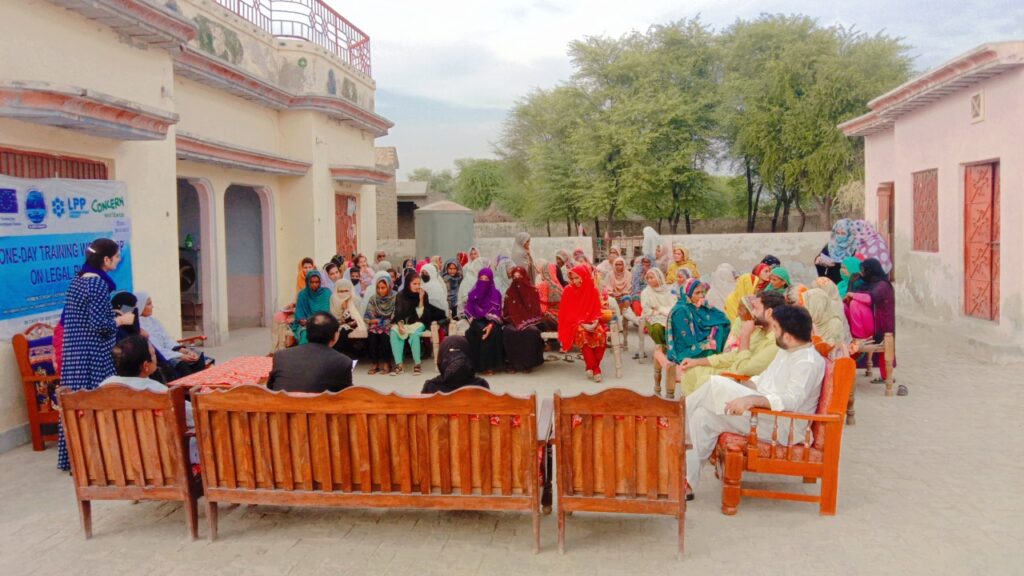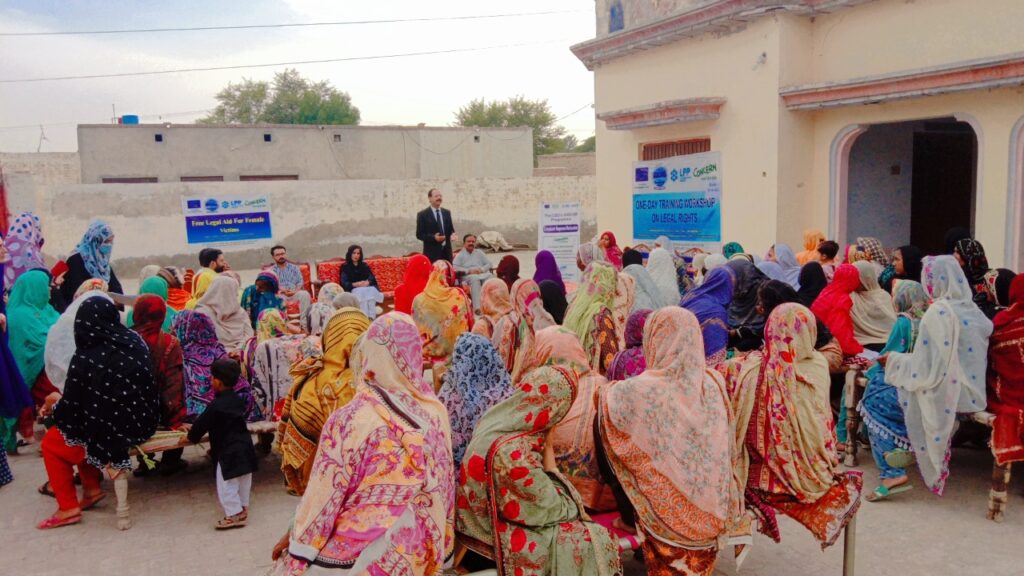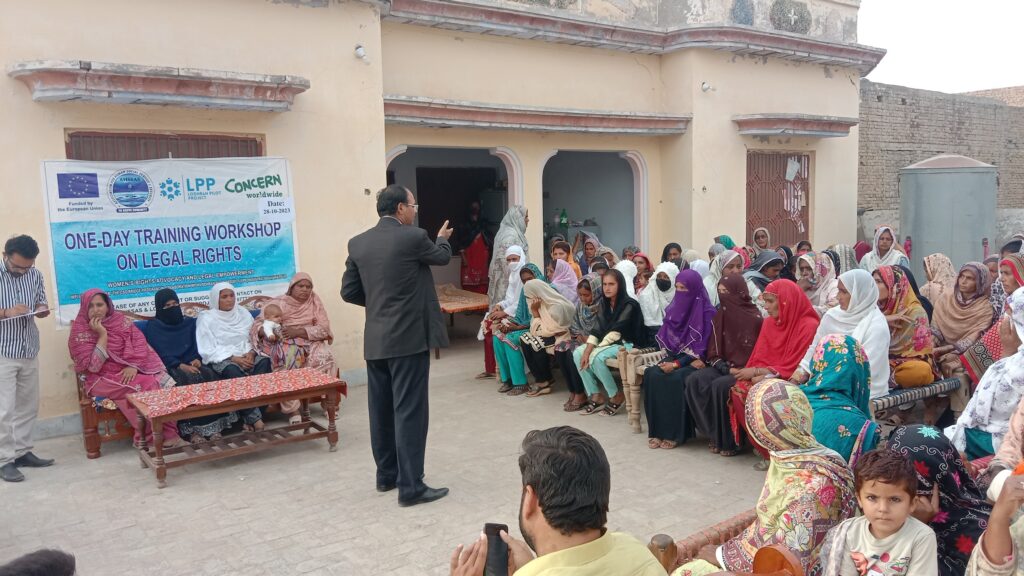Introduction
In the pursuit of fostering community empowerment and awareness, the recent AHSSAS (Advocacy, Humanitarian, Social Services and Awareness) activity held at 33 BC Sardar Wali in Dera Bakha, Bahawalpur proved to be a significant stride. The one-day training workshop on legal rights not only aimed to disseminate crucial information but also to empower individuals, enabling them to understand, access, and assert their legal rights effectively.
Context:
Dera Bakha, located in the heart of Bahawalpur, is a community that often grapples with challenges related to legal awareness and access to justice. Recognizing this need, AHSSAS organized a targeted workshop to bridge the gap and equip the residents with essential knowledge about their legal rights. The activity took place at 33 BC Sardar Wali, a pivotal location within the community, on 28-10-2023.
Objectives of the Workshop:
Dissemination of Legal Knowledge:
The primary goal of the workshop was to provide comprehensive information on legal rights, focusing on areas such as family law, property rights, and labor rights. Legal experts were invited to facilitate sessions and offer insights into the intricacies of the legal system.
Empowerment Through Awareness:
The workshop aimed to empower participants by raising awareness about the rights and protections afforded to them under the law. Emphasis was placed on demystifying legal jargon and processes to make the information accessible to a diverse audience.
Building Community Networks:
Beyond imparting knowledge, the workshop sought to establish a network within the community. Attendees were encouraged to connect with each other, fostering a sense of unity and collective empowerment that could be harnessed in navigating legal challenges.
Activities and Sessions:

Legal Literacy Sessions:
Expert speakers conducted sessions on fundamental legal concepts, providing real-life examples to enhance understanding. Topics included marriage and divorce laws, inheritance rights, and legal safeguards for workers.
Interactive Workshops:
To engage participants actively, interactive workshops were organized. These sessions allowed individuals to discuss hypothetical scenarios, ask questions, and seek clarification on legal matters directly affecting them.
Role-Playing Exercises:
Practicality was a key focus of the workshop. Role-playing exercises were incorporated to simulate common legal situations, allowing participants to apply the knowledge gained and develop problem-solving skills.
Q&A Sessions:
Open forum question-and-answer sessions were held, encouraging participants to voice their concerns and seek clarifications on specific legal issues. This interactive format facilitated a more personalized and tailored learning experience.
Outcomes:

Increased Legal Awareness:
The workshop significantly contributed to enhancing legal awareness within the community. Participants gained a deeper understanding of their rights and responsibilities, enabling them to make informed decisions.
Community Empowerment:
Empowerment was a key outcome, as individuals felt more confident in navigating legal systems. The establishment of community networks fostered a supportive environment where residents could share experiences and knowledge.
Improved Access to Justice:
By equipping participants with the knowledge to assert their legal rights, the workshop contributed to improving access to justice. Individuals were better prepared to engage with legal processes and seek redress when needed.
Positive Community Dynamics:
The workshop’s focus on community building had a ripple effect on interpersonal relationships. The newfound sense of unity and shared understanding within the community laid the foundation for positive dynamics and collective action.
Challenges and Lessons Learned:
Language Barriers:
Addressing diverse linguistic backgrounds within the community posed a challenge. Future activities should consider employing translators to ensure that language differences do not hinder effective communication.
Sustainability:
Ensuring the sustainability of the knowledge imparted remains a challenge. Follow-up activities, such as regular information sessions or the creation of a community helpline, could help reinforce the lessons learned during the workshop.
Tailoring Information:
The diverse needs of the community members required a more tailored approach to information dissemination. Future workshops should consider segmenting sessions to address specific concerns based on demographics or legal focus areas.
Conclusion
The AHSSAS activity, a one-day training workshop on legal rights at 33 BC Sardar Wali, Dera Bakha, Bahawalpur, stands as a testament to the transformative power of community engagement and education. By empowering individuals with knowledge and fostering a sense of community, the workshop not only addressed immediate legal concerns but also laid the groundwork for a more informed and resilient community.
As we reflect on this activity, it is imperative to recognize the ongoing commitment required to sustain the momentum generated. Continued efforts in legal education, community building, and advocacy will be essential to ensure that the impact of this workshop endures, creating a lasting positive change in the lives of the residents of Dera Bakha.

